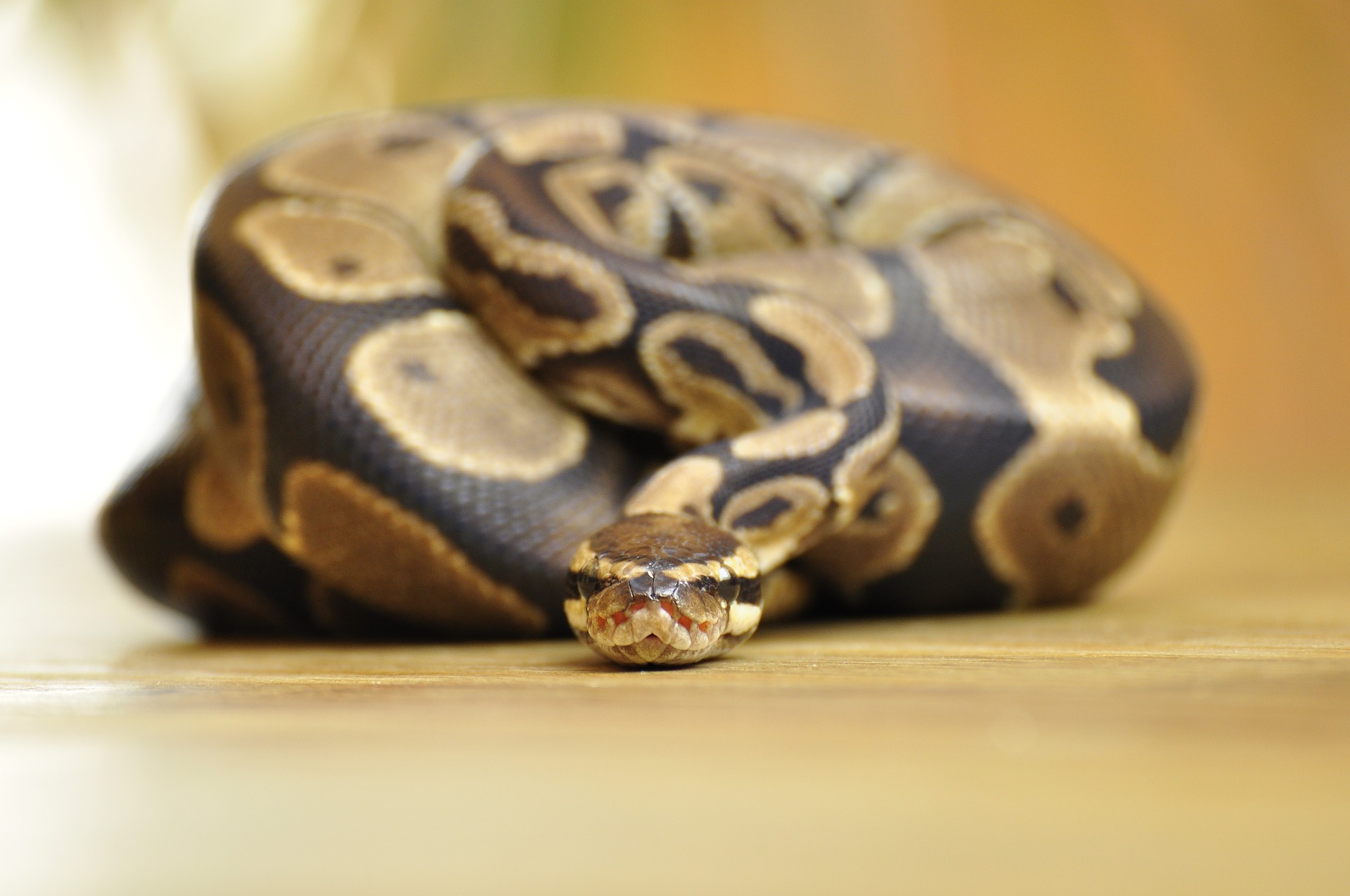Ball Python

Ball pythons, also known as royal pythons, are a type of snake that is native to West and Central Africa. They are named for their tendency to curl up into a tight ball when they feel threatened, with their head tucked inside their coils. These snakes are relatively small, with adult specimens typically reaching lengths of only 3 to 5 feet. One of the most appealing aspects of ball pythons as pets is their docile nature. They are non-venomous and generally calm, making them a good choice for first-time snake owners. They are also relatively easy to care for, as long as their enclosure is properly set up and maintained. In terms of enclosure, ball pythons require a tank that is large enough for them to move around and thermoregulate their body temperature. The should live in a tank that is at least 40 gallons in size. The enclosure should also have a secure lid, as ball pythons are excellent climbers and may try to escape if given the opportunity. In terms of temperature, ball pythons need a warm side of their enclosure that is between 80 and 85 degrees Fahrenheit, and a cooler side that is between 75 and 80 degrees Fahrenheit. A heat lamp or heating pad can be used to maintain the proper temperature gradient, and a thermostat should be used to ensure that the temperature remains consistent. In terms of lighting, ball pythons do not require special lighting and can be kept on a natural light cycle. However, they do need a period of darkness each day in order to properly rest and regulate their behavior. In terms of diet, ball pythons are typically fed frozen rodents, such as mice or rats. These should be thawed before being offered to the snake, and should be no larger than the width of the snake's body. It is recommended to feed ball pythons once every 7 to 10 days, and to provide fresh water at all times. Overall, ball pythons make great pets for reptile enthusiasts due to their docile nature and relative ease of care. With the proper enclosure, temperature, lighting, and diet, they can live long and healthy lives in captivity.
